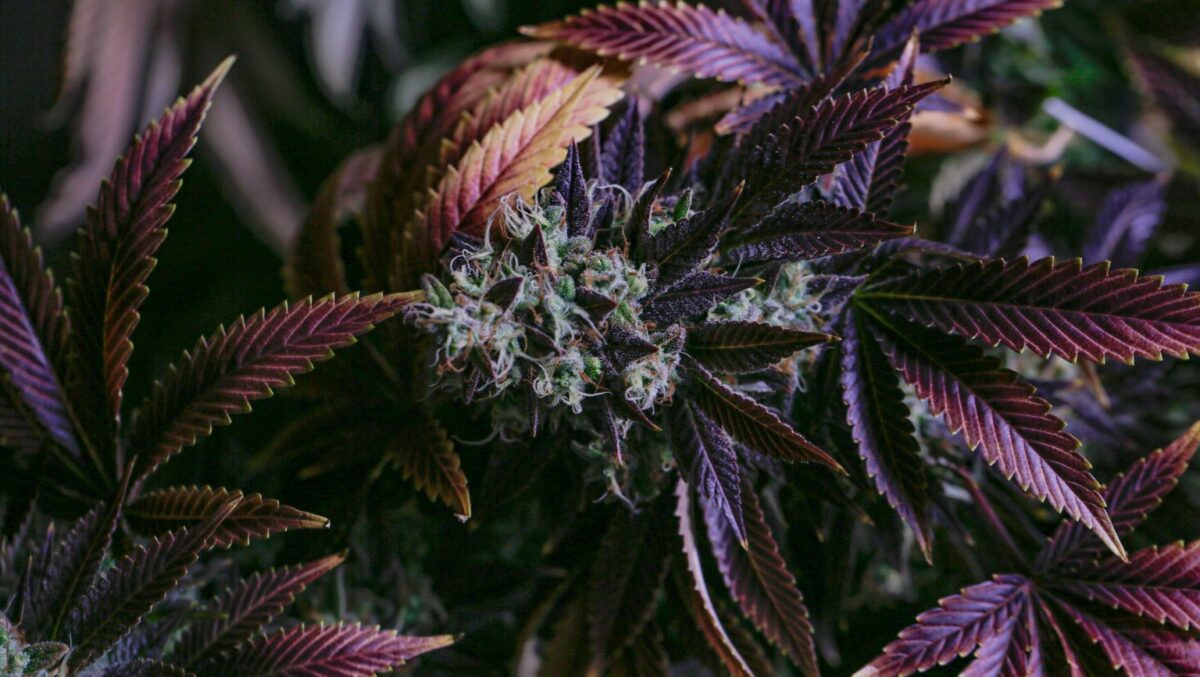
The Basement Gym + Studio opens in Camden Town
Camdenist readers get 50% off their first month’s membership, too

Cannabis lovers like to relax and enjoy the thought that their drug of choice is all natural. It’s ‘the herb’, a sacred plant with medicinal, even magical powers, gifted to humanity but cruelly supressed by decades of prohibition. Unfortunately, the modern product they are indulging in is often far off that blissful ideal. Weed’s ongoing outlawed status in the UK continues to hand this huge marketplace to an unregulated criminal fraternity, leading to chemically adulterated or new, highly addictive synthetic highs that end up being far more dangerous, (not to mention the violence, coercion and imprisonment that ruins lives in other ways). Yet an organic movement exists, operating somewhere beneath the underground, if you like.
Mary* got into cannabis growing a few plants in her loft when her business was failing and she was desperately looking for a different source of income to pay off creditors. “The minute I started looking into what it entailed, I was horrified at what an unnatural process of pesticides and plant foods was being pushed across the board,” she says. Already a keen maker of her own organic skincare and cleaning products over 30 years, she decided she’d grow her plants organically, but this put paid to the idea of making much money, as the crop yield isn’t so high. Feedback from her handful of local smokers, though, was glowing with praise.
In 2017 Mary was unable to save her company, declared bankruptcy and lost her property, meaning she and her husband had to leave London. “I was totally disenchanted with the system having gone through that, and seeing how totally corrupt the bankruptcy procedure was,” she says. “At that point, we were in no mood to stay withing the law. There was no hesitation in scaling up the growing and making it our livelihood.”

They found an ideal spot – a secluded Georgian farmhouse, complete with outbuildings and a large overgrown garden – and went about setting up a small biodynamic cannabis farm. It is now a thriving ecosystem, with the feeding, composting and cultivation of their chemical-free crops a full-time undertaking. Their client list grew, Mary making regular delivery trips back to London offering a menu of Sativa and Indica strains of varying strengths and desired effects, plus tinctures for daily microdosing, balms, chocolates and even cannabis bud bath bombs.
“We very much run this as a community enterprise,” says Mary of her largely well-heeled and discerning customer base. “We have a medical fund that the recreational customers pay into which supports free treatments for people with MS, anxiety, even stage four brain cancer. We’re incredibly proud of our community and what we’ve all built.”
Magic mushroom marketplace
As acceptance of these long-forbidden plants and fungi as mainstream medical applications increases, so too does interest in them as healthier alternatives to booze and chemical highs by people seeking a spot of intoxication for the sheer fun of it.
“I call it the magic market,” says Jane*, a mother of young children who started out making cannabis gummies for sale to friends to fit in with her busy family schedule. She then found that there was also a huge demand for word-of-mouth psilocybin-based mushroom sweets, too, and got into growing those. “It’s exponential. There’s a big need for it on the party scene, the everyone wants my number and that leads to many different circles, from people with cancer, to those looking to microdose for self-confidence issues.”
One of the key benefits of shroom and cannabis gummies made with care like this is that the dose is controlled. “People have memories of edibles and space cakes when they were younger that really messed with their head,” she says. “With my gummies, you know where you are. One to take the edge off, two or three and things are getting psychedelic.”
Although Jane’s customers are predominantly party people, she loves the transformational potential of her mind-expanding products, citing a close friend who turned his life around recently. “I like to think that my chocolates had some input in that,” she grins. “Nature really worked its magic on him.”
Mary, too, likes her recreational users to explore more therapeutic uses. “We now offer cannabis-assisted meditation sessions with your delivery, if you are struggling,” she reveals. Her team – she no longer drives deliveries herself, being too busy cultivating the crops – offer this calming service in exchange for a donation to the health fund.
With such a professional and apparently thriving business based around a wellness-centric model, you’d think that their entire operation is just waiting for the moment the UK finally progresses to the kind of liberalised weed laws many states in the USA are adopting. However, Mary is not, in fact, considering that at all. “We have plans for the future, but these do not involve legalisation,” she tells us. “Predictably and depressingly, they have started to issue licences, but they are all going to Big Pharma, or people with hundreds of thousands of pounds to court MPs. We’ve decided we’re not going to go through the pain of try to get a licence as we’re almost certainly not going to be able to get one.”
The UK is already the biggest grower of cannabis crops in Europe, with former PM Theresa May’s husband heavily invested in the biggest export company for decades. The hypocrisy masks a darker motive, which is that the government and associated mates are already dominating the industry, while keeping everyone else locked out and threatened with prison by archaic laws. Mary sees what has happened in California, where the artisanal growers are still forced to operate on the black market, while the licensed companies running huge warehouses rake in the big money.
“Legalisation is coming here for sure,” she says, “and that should create some very viable and ecologically sound businesses, but that opportunity is not even on the table as it’s all going to go to these big companies. And they won’t be growing organically, that’s for damn certain.”
Even at the legal, non-psychoactive CBD end of the market, licences are hard to obtain due to the complexity of the process requiring expensive lawyers and more to be granted (Mary’s application was turned down). So despite our failed experiment with prohibition slowly, inexorably relaxing, the stringent regulation around growing a plant, or some fungi, is still ludicrous.
Jane is similarly not interested in even attempting to take her business legit. “I kind of like how it is, a bit underground,” she says. “It just allows me to feed the kids, not worry too much, share a bit of knowledge, but to be honest I have no idea what is going on it the wider mushroom community. I just turned what I was growing for myself into something bigger as there was just so much demand.”
Mary and her husband do have bigger ambitions, and investors are showing interest, but these are mainly to find and secure an even more remote farm, so they don’t have to sneak around. The delivery logistics are already in place, managed a trustworthy team (another husband and wife who are evangelical about cannabis as it helps both of them with ADHD), so the main intention is to continue serving their community with top quality product for successful medication and healthier intoxication.
“Most cannabis users don’t understand that this incredible plant is sadly usually rendered into something that is a basic recreational drug, complete with bad side-effects. The use of chemicals and growing all these incredibly strong strains is simply driven by maximising profit, and in the end that doesn’t do the user any good. It certainly doesn’t do the environment any good. That’s the thing that should really be illegal – to take something given to us by nature, and fuck it up.”
This article first appeared in Camdenist Presents…Grow, our free print magazine out now across the borough and Central London

Camdenist readers get 50% off their first month’s membership, too

A brand new hairdressing and barbering academy has landed in Camden Town and is now seeking style-conscious models and enthusiastic trainees

We speak to founder, Sol, about bringing the studio to Kentish Town

Explore the neighbourhood’s brand new neighbourhood